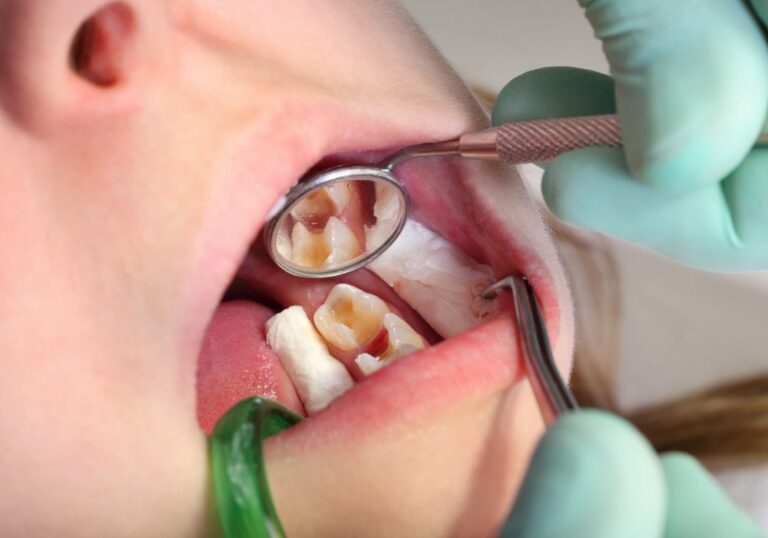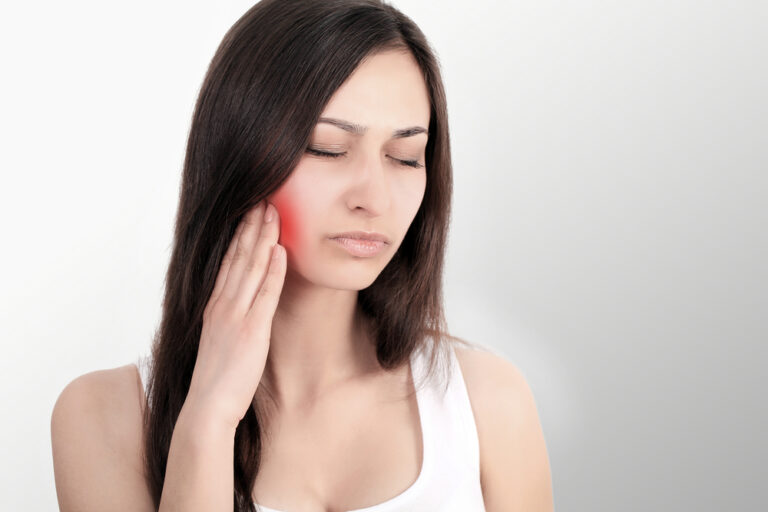Flossing is a critically important part of your daily oral hygiene routine. It removes plaque and food particles from between teeth and below the gumline where brushing can’t reach. However, you shouldn’t ignore an unpleasant gritty or scratchy feeling when sliding floss between certain teeth. This texture change from smooth gliding to grittiness usually indicates some type of underlying problem.
Understanding What Causes That Annoying Gritty Feeling
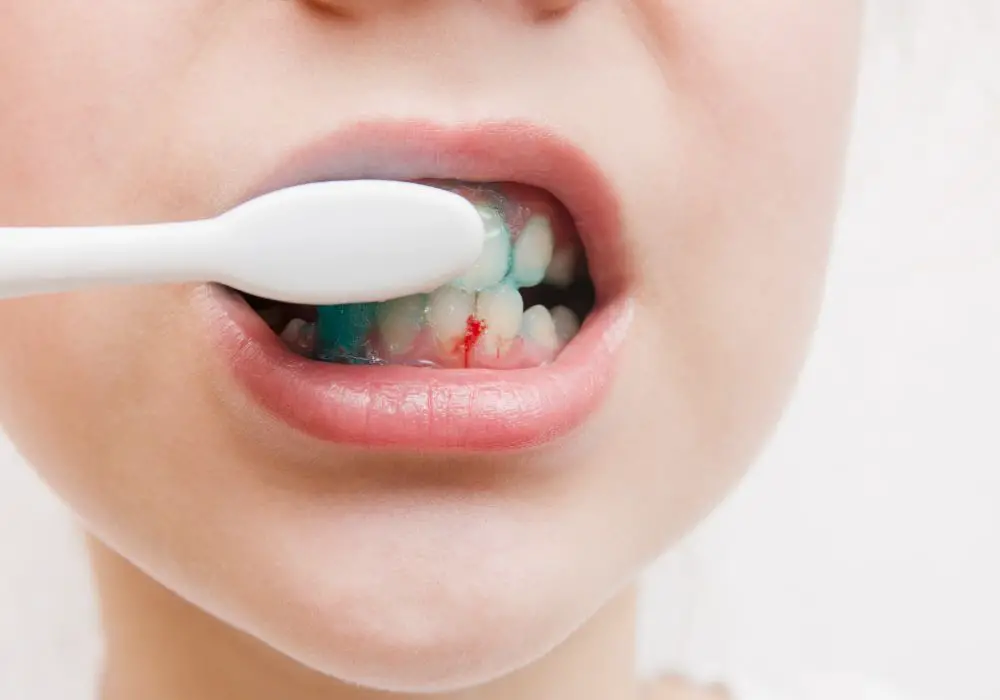
Main Culprits Behind Gritty Teeth During Flossing
There are several possible reasons for grittiness between teeth when you floss:
Tooth Decay and Cavities
Tooth decay occurs when plaque bacteria produce acids that erode tooth enamel. Enamel is the protective outer layer of the tooth crown. Underneath enamel lies a softer layer called dentin. This material has microscopic tubules giving it a rough, sandy texture.
As a cavity forms, it can breach the enamel and reach the gritty dentin underneath. Flossing over the hole and exposed dentin surface creates friction and a noticeable sandy feeling. The sensation comes from essentially flossing over uneven, pitted dentin.
Cavities typically correlate with a specific tooth, often starting as a small dark spot on the enamel. As they grow larger, you may notice a stickiness or bad taste around the decayed area. Advanced decay can lead to brown or black discoloration of the entire tooth.
Receding Gums and Periodontal Disease
Gingivitis causes inflammation and damage to the gums. As tissues recede due to infection and inflammation, deep pockets form which easily collect plaque. Tartar also readily builds up on exposed tooth roots.
Floss scraping over plaque and tartar deposits inside gum pockets leads to friction and grittiness. The roughened root surfaces of teeth affected by advanced periodontal disease also elicit a noticeably sandy texture.
Bleeding and sore gums are the main symptoms of gingivitis and periodontitis. However, another warning sign is increased sensations of grittiness as gums recede. Bad breath and visible plaque buildup are other clues.
Enamel Erosion
Enamel is the hard, mineral-rich outer layer that protects your teeth. But certain habits can erode and weaken enamel over time. Frequent exposure to acidic foods and drinks is a prime culprit. Soda, sports drinks, wine, citrus juice, vinegar, and yogurt all have low pH levels.
Grinding or clenching your teeth aggressively can also wear down enamel through sheer physical abrasion. Dry mouth and reduced saliva flow mean less buffering capability and remineralization as well, increasing erosion.
As enamel thins out or develops microscopic pits, the rough underlying dentin becomes more apparent through the porous layer. This causes a perceptible gritty texture when flossing over eroded areas.
Buildup of Tartar and Plaque
Plaque contains bacteria, while tartar is hardened, mineralized plaque. Both can build up between teeth, especially in hard to reach spots. accumulated tartar and plaque create a sandpapery feeling as floss scrapes over the gritty deposits. Food debris also gets trapped, adding to the rough texture.
You may notice some bleeding or gum irritation as well from the inflammation these irritants cause to surrounding tissues. However, unlike cavities and receding gums which correlate to specific teeth, plaque and tartar buildup typically feel gritty between all teeth.
Why You Shouldn’t Ignore Gritty Flossing Sensations
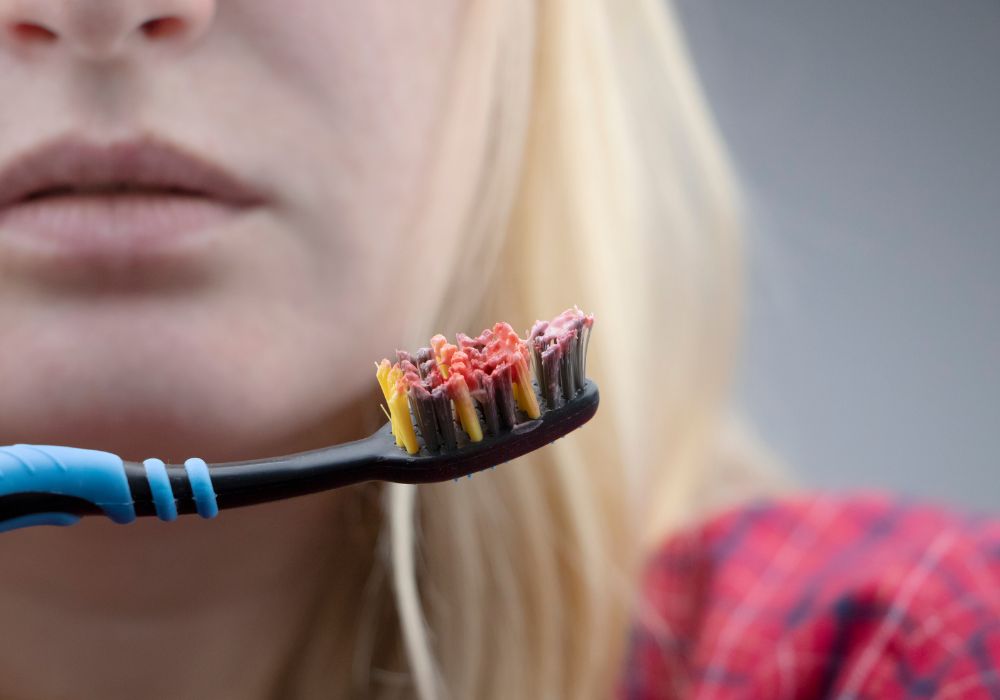
It’s important not to brush off gritty sensations while flossing as normal. Grittiness during flossing means existing enamel and gum damage is already allowing dentin exposure and easy plaque retention.
Leaving the problem unchecked allows destruction to accelerate:
- Cavities rapidly expand into the tooth interior
- Gum and bone damage worsens, risking tooth loss
- Enamel erosion exposes more rough, sensitive dentin
- Tartar and plaque deposits enlarge and harden
Increased dentin sensitivity, tooth fracture, loose teeth, foul breath, severe gum recession, and abscesses inside teeth are all possible complications. That’s why it’s critical to see your dentist as soon as you notice any new or worsening gritty feelings when flossing.
Determining the Cause of Gritty Flossing
Don’t try diagnosing the problem yourself since many conditions involve similar symptoms. Let your dentist examine, probe, and potentially X-ray the area to pinpoint the reason behind the gritty flossing sensation.
Here are some methods your dentist may use:
- Visual exam – Checks for visual signs like cavities, eroded enamel, swollen or receding gums, tartar buildup, etc.
- Exploring tooth surfaces – Uses a dental probe to feel for roughness, stickiness, or pits indicating decay.
- Periodontal examination – Evaluates gum recession and pocket depth around teeth.
- X-rays – Assesses tooth roots and surrounding bone for damage or infection.
- Sensitivity testing – Determines if a tooth reacts to hot, cold, or pressure indicating dentin exposure.
- Plaque/tartar removal – Cleans away gritty buildup to check if roughness resolves.
Your dentist will then explain their findings and recommend appropriate treatment options based on the cause. Typical treatments include:
- Filling cavities
- Prescribing medicated mouth rinses for gum infections
- Deep cleanings to remove plaque/tartar
- Gum grafting for recession issues
- Nightguards for teeth grinding
- Saliva substitutes for dry mouth
Following recommended steps will help restore damaged areas and resolve any troubling gritty, rough sensations when flossing your teeth.
Prevention Is Key
Preventing gritty teeth from the start is ideal. Follow these tips to maintain smooth, damage-free tooth surfaces:
- Floss thoroughly once daily – Regularly remove plaque before it hardens into rough tartar.
- Brush properly twice daily – Helps strengthen enamel and cleans plaque from tooth surfaces.
- Use fluoride toothpaste – Fluoride remineralizes enamel to keep it damage-resistant.
- Rinse with water after acidic foods/drinks – Helps neutralize pH and prevents erosion of enamel.
- Limit sugary and acidic foods/drinks – Reduces risk of decay and enamel erosion.
- Get professional cleanings – Removes hardened tartar and allows for early diagnosis of issues.
- Use mouthguards if grinding teeth – Protects against enamel wear.
- Take medications as prescribed – Improves dry mouth by boosting saliva production.
- Avoid smoking and tobacco – Cigarettes increase plaque buildup and gum recession.
- Get regular dental checkups – Monitoring helps detect problems while they are still minor and easy to treat.
Don’t Delay with Potential Gum or Tooth Damage
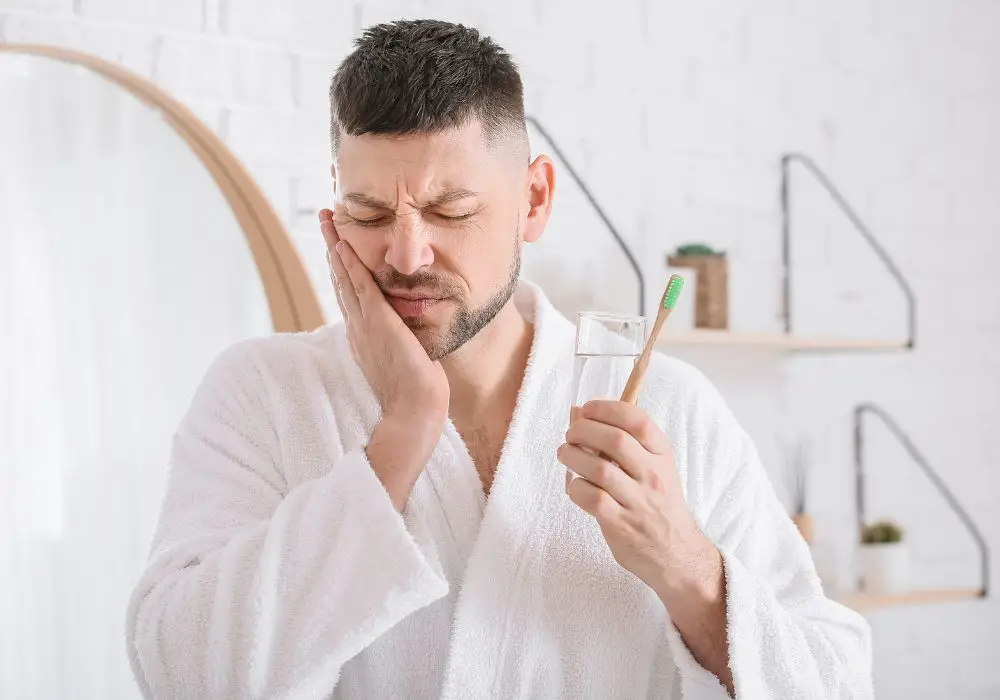
Schedule a prompt dentist visit if you notice a new gritty feeling when flossing. Other red flags include tooth sensitivity, loose teeth, receding gums, constant bad breath, and serious plaque buildup. Waiting allows more destruction to occur.
Catching issues early when they first manifest with subtle texture changes means less complex treatments. Conversely, delaying treatment typically necessitates more invasive, time-consuming, and costly interventions to fix extensive damage.
Saving your natural teeth and gums requires being proactive. Report any unusual findings like flossing grittiness to your dentist right away to identify and resolve the problem.
Frequently Asked Questions About Gritty Teeth and Flossing
Wondering if your gritty flossing sensation is normal or what to do about it? Here are answers to some common questions.
What’s the most likely cause of gritty teeth when flossing?
Cavities and tooth decay are the most common culprits of gritty sensations while flossing. However, receding inflamed gums, tartar buildup, eroding enamel, and dry mouth can also elicit gritty friction. Have your dentist examine your teeth to determine the exact cause.
Can I fix the gritty feeling on my own?
Unfortunately, no. Proper treatment requires an assessment, diagnosis, and care plan from a dentist. Flossing thoroughly may temporarily reduce some sensations by removing debris. However, only your dentist can provide solutions that address the underlying problem causing the texture change.
How long after noticing grittiness do I need to see a dentist?
Ideally, schedule an appointment right away if your teeth suddenly feel gritty during flossing. This change in texture likely means damage is already present, and waiting allows it to expand. Prompt evaluation and treatment can often still repair early-stage issues before they worsen.
Does gritty flossing always mean I’ll need a filling?
Not necessarily. Fillings are needed for moderate or advanced tooth decay. But other culprits like gum disease, worn enamel, and excessive tartar buildup just require removing infection and deposits. Your dentist will decide on the best treatment course based on an exam.
Can poor flossing technique cause a gritty feeling?
Improper flossing can potentially aggravate your gums. But typically, it does not cause a gritty texture by itself without pre-existing tooth or gum problems. Do see your dentist when you notice grittiness since something beyond just flossing technique likely needs correction.
Is it possible to prevent my teeth from ever feeling gritty when flossed?
Yes, good oral hygiene and regular dental cleanings can help minimize your risk of developing issues like cavities, eroded enamel, and excessive plaque buildup that make teeth feel gritty from flossing. However, things like gum recession are sometimes unavoidable even with diligent care.
When is grittiness while flossing considered an emergency?
See your dentist right away if the gritty feeling is accompanied by serious symptoms like swelling, numbness, severe pain, or trauma causing a tooth to crack or get knocked out. These scenarios may require urgent treatment. Isolated gritty flossing sensations without extreme pain can wait for a routine dentist visit.
Can my dentist smooth out rough spots on my teeth causing gritty flossing?
Yes, your dentist has techniques like polishing, crown shaping, and enamel microabrasion to selectively smooth down roughened tooth structures and create a less abrasive flossing experience. However, they still need to address any underlying problems as well or roughness will recur as decay or damage progresses.
How can I floss gritty teeth without pain or gum damage?
Use a gentler flossing technique in areas that feel gritty. Avoid snapping floss forcefully down on sensitive gums and teeth. Instead, carefully ease floss down and move it in gentle motions to avoid scraping too aggressively over damaged surfaces. A rubber flosser or interdental brush can help as well.
The Bottom Line
Don’t overlook new grinding, scraping, or gritty sensations that arise suddenly when you floss. This texture change signals existing enamel erosion, decay, gum recession, or excessive plaque and tartar buildup. See your dentist promptly to have the cause diagnosed and treated properly before minor problems become major, expensive ones. Addressing gritty flossing sensations quickly leads to the best outcomes.





